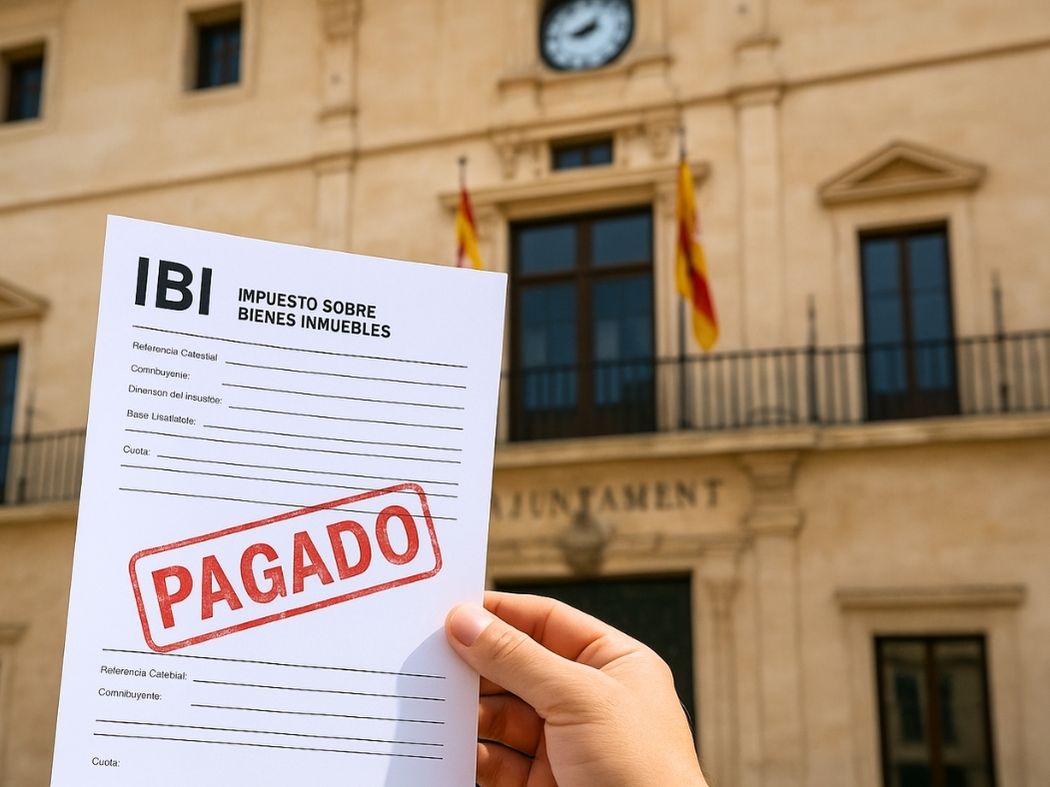If you are thinking about selling your property, there is a legal and tax aspect you cannot overlook: the Real Estate Tax (IBI). This municipal tax is not only mandatory for all property owners, but it can also directly influence the sale transaction. In this article, we explain who pays the IBI in a sale, why it is important to have it up to date, and what to do if there are pending debts.
What is the IBI?
The IBI is a tax levied on the ownership of a property and is paid annually to the corresponding town hall. It is calculated by applying a tax rate to the cadastral value of the property, which depends on factors such as location, area, use, and age.
This tax must be paid by the registered owner as of January 1 of each year, regardless of whether the property is sold during that same fiscal year.
Note: Each town hall establishes its own IBI collection date.
Why is the IBI important in a sale?
When the sale of a property is formalized, the buyer has the right to receive the property free of encumbrances and up to date with its tax obligations. For this reason, one of the documents that lawyers, notaries, legal advisors, or the buyers themselves typically request in the transaction are the IBI payment proofs.
In fact, it is common practice, especially when foreign buyers or investors are involved, to require the IBI receipts for the last 4 years, as proof that the property does not carry any municipal debt that could hinder the transaction or affect the new owner.
Do you want to sell your house?
We get you the best price
What if the IBI is not paid?
If the property has IBI debts, these do not disappear with the sale. The town hall can claim payment even from the new owner, as the debt is associated with the property, not the person.
In these types of cases:
- The buyer could demand a reduction in the sale price.
- The notary might withhold a portion of the price until the debt is settled.
- The transaction could be postponed if there is no agreement between the parties.
Therefore, if you are selling a property, it is most advisable to have all IBI payments up to date before starting the process.
So, who pays the IBI in a sale?
Legally, the Real Estate Tax (IBI) must be paid by whoever is the owner on day January 1 of that same year. Thus, if you sell your house in June, you remain the taxpayer before the town hall.
However, in practice, it is common for buyer and seller to proportionally split this tax based on the time each has owned the property during the year. This agreement must be in writing, either in the private sale contract or in the public deed before a notary.
This agreement does not affect liability before the town hall, but it does internally regulate how the cost of the IBI is shared between the parties. Once the tax for the current fiscal year is paid, the proportional proration is carried out based on the period of possession of each party during the calendar year. The buyer must reimburse the seller the part owed, provided there is an express clause in the private sale contract or in the public deed and the corresponding payment proof is provided.
How much is my house worth?
Get a free online valuation of your property.
How to get IBI receipts?
If you don’t have them on hand, you can obtain the proofs easily:
- Through the electronic headquarters of your town hall (with digital certificate).
- At the municipal tax collection offices.
- By reviewing your bank account if the tax is direct debited.
We recommend keeping at least the last four IBI receipts and presenting them to the buyer (or their lawyer) and the notary as part of the documentation for the sale. Likewise, it is advisable to include them as an annex to the private sale contract, so there is explicit evidence of their delivery.
Conclusion
Keeping the IBI up to date is not only a tax obligation but also a guarantee of transparency and security in any sale process.
Who pays the IBI in a sale? Initially, the seller. But with a good agreement between the parties, this expense can be shared. The most important thing is that everything is clear, in writing, and up to date before signing.
If you have doubts about how to regularize your situation or need help preparing the documentation for your property’s sale, at Balear Living Real Estate, we will be happy to accompany you every step of the way.
Questions about the documentation?
We guide you with the necessary documents to sell.




